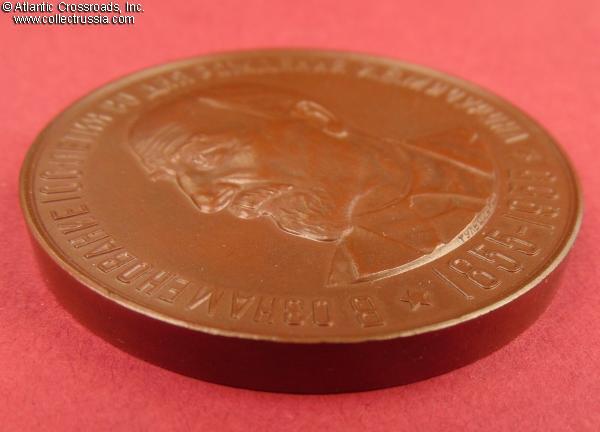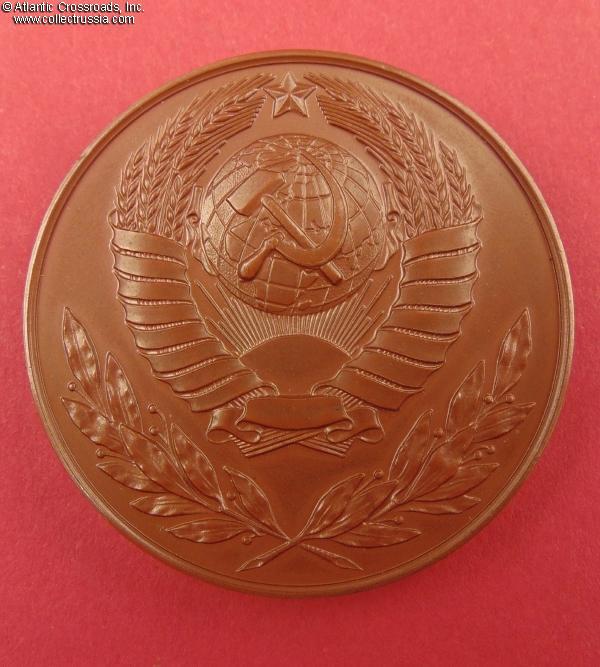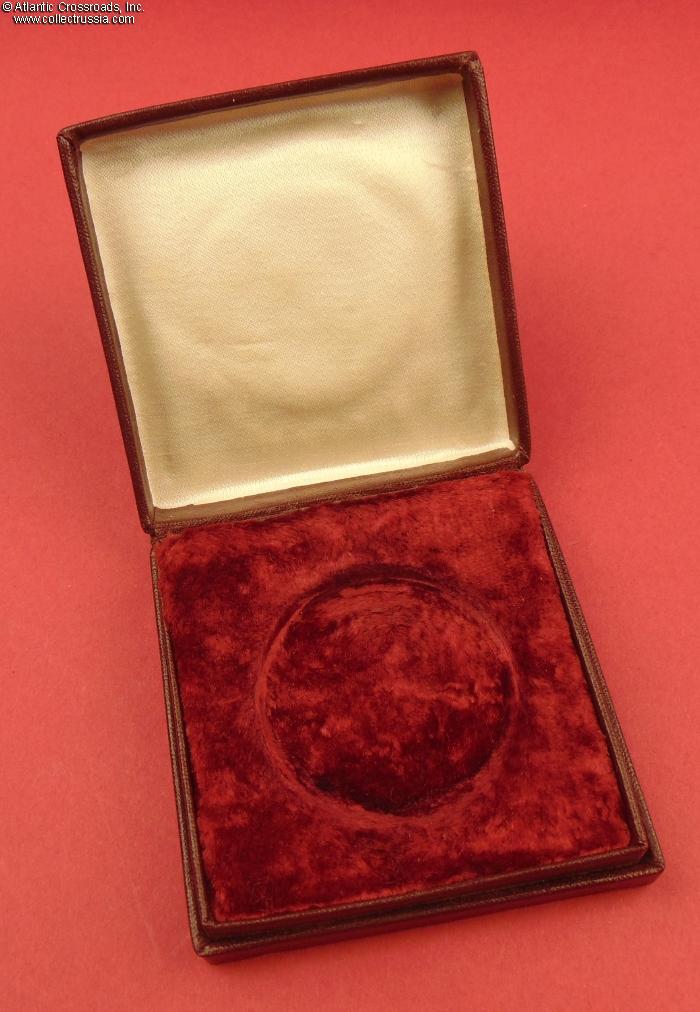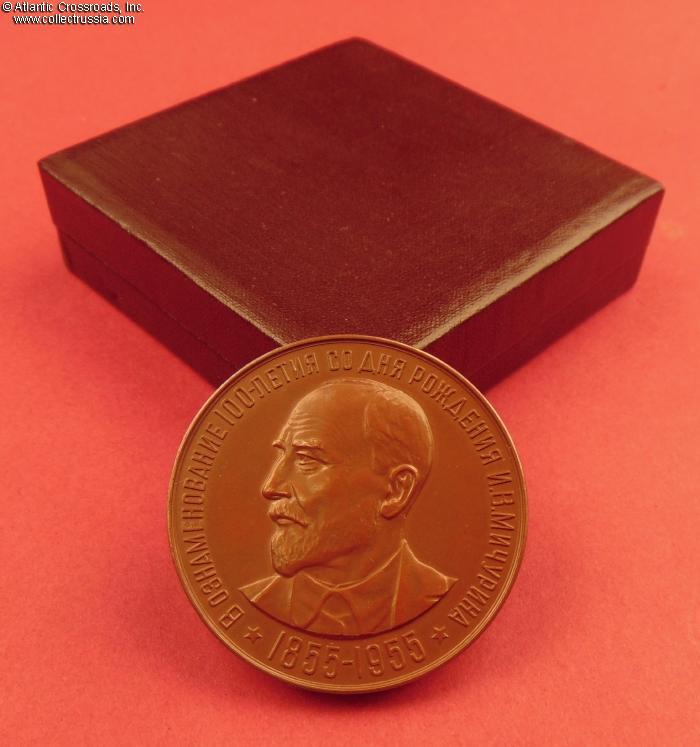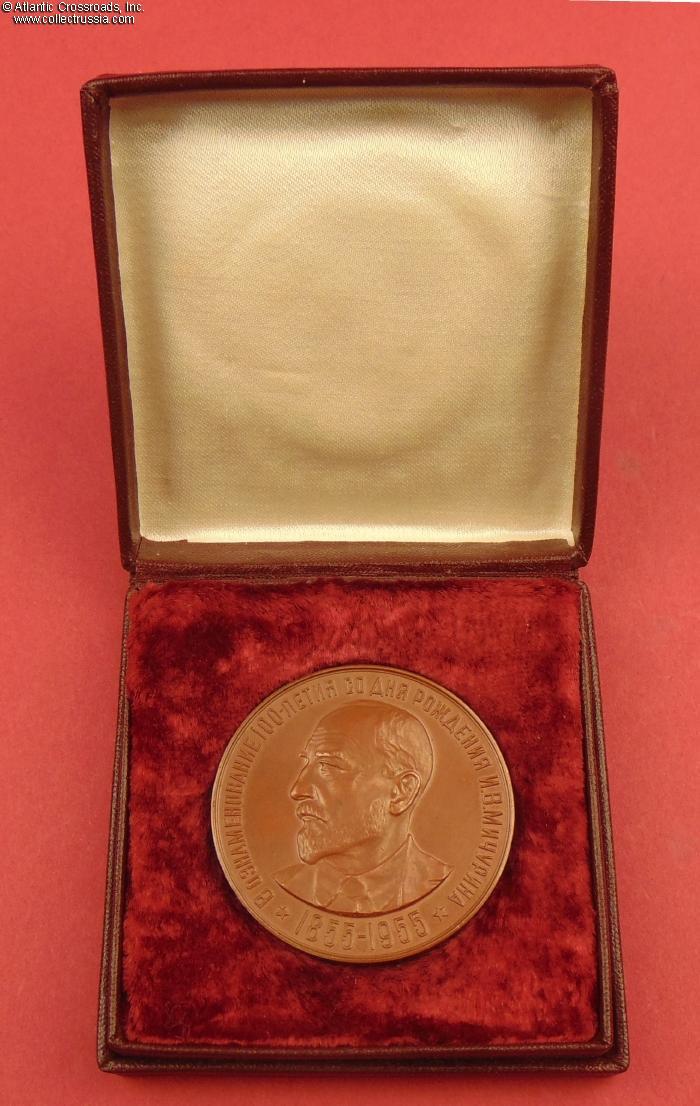
Table Medal in Commemoration of the Centennial of Birth of Ivan Vladimirovich Michurin, with original fitted case of issue, 1955.
In bronze; measures 50.1 mm wide, approx. 5 mm thick at the edge; weighs 78.8 g. On the obverse is a sculptured bas-relief of Michurin and inscription "In Commemoration of the 100-Year (Anniversary) Since the Birth of I.V. Michurin, 1855-1955". On the reverse is the Soviet national emblem in high 3-d profile. It is interesting to note that the emblem features 16 scrolls representing the number of republics in the USSR; during the same year of 1955, the emblem changed to the 15-republic version.
In excellent, near mint condition. Aside from a couple of microscopic contact
In bronze; measures 50.1 mm wide, approx. 5 mm thick at the edge; weighs 78.8 g. On the obverse is a sculptured bas-relief of Michurin and inscription "In Commemoration of the 100-Year (Anniversary) Since the Birth of I.V. Michurin, 1855-1955". On the reverse is the Soviet national emblem in high 3-d profile. It is interesting to note that the emblem features 16 scrolls representing the number of republics in the USSR; during the same year of 1955, the emblem changed to the 15-republic version.
In excellent, near mint condition. Aside from a couple of microscopic contact marks at the raised edge, the medal shows no wear visible even under a 10x loupe. Exceptionally beautiful, even mahogany-toned patina throughout.
The case of issue is of the early style, wrapped in brown maroon leatherette, with a silk lining of the lid and plush burgundy velvet nest for the medal. The box is in excellent condition, showing practically no wear. Both the exterior and interior are perfectly clean.
A successful practitioner of hybridization of plants, Michurin was especially famous for some of the fruit varieties he produced, including the Antonovka apple, extremely popular in the former Soviet republics to this day. Following the Bolshevik Revolution, he came to be highly respected by Lenin who allotted Michurin a special farm; that later grew into a large experimental farm and eventually, a fully-fledged genetic research laboratory. In the final years of Michurin's life and after his death in 1935, his works were craftily employed by the upstart fraudster Trofim Lysenko, a favorite of Stalin and later, Khrushchev. Making promises to deliver biological miracles to jump-start the flagging Soviet agricultural productivity, Lysenko coined the term "Michurinism", usurped the leadership of the Soviet biological science, postulated that genome is mainly a subject to external conditions (sort of an extension of the Marx's "being determines consciences"), and denounced the Mendelian genetics as "bourgeois pseudo-science". As a result, many prominent Soviet biologists lost their jobs and quite a few, their lives, while genetic research in the USSR was set back by decades.
The Michurin centenary medal was one of the very few Soviet table medals issued prior to the late 50s, clearly reflecting the high regard for him among the Soviet leadership and general public alike. Designed by S.L. Tulchinskiy, the medal was struck at the Leningrad Mint. Only 570 specimens were minted - a tiny number compared with the vast majority of Soviet table medals issued in later years.
/Commemorative [Table] Medals of the Soviet Period, 1919-1991, fig. 116/
Please note that penny coin in our photo is for size reference.
$275.00 Add to cart


